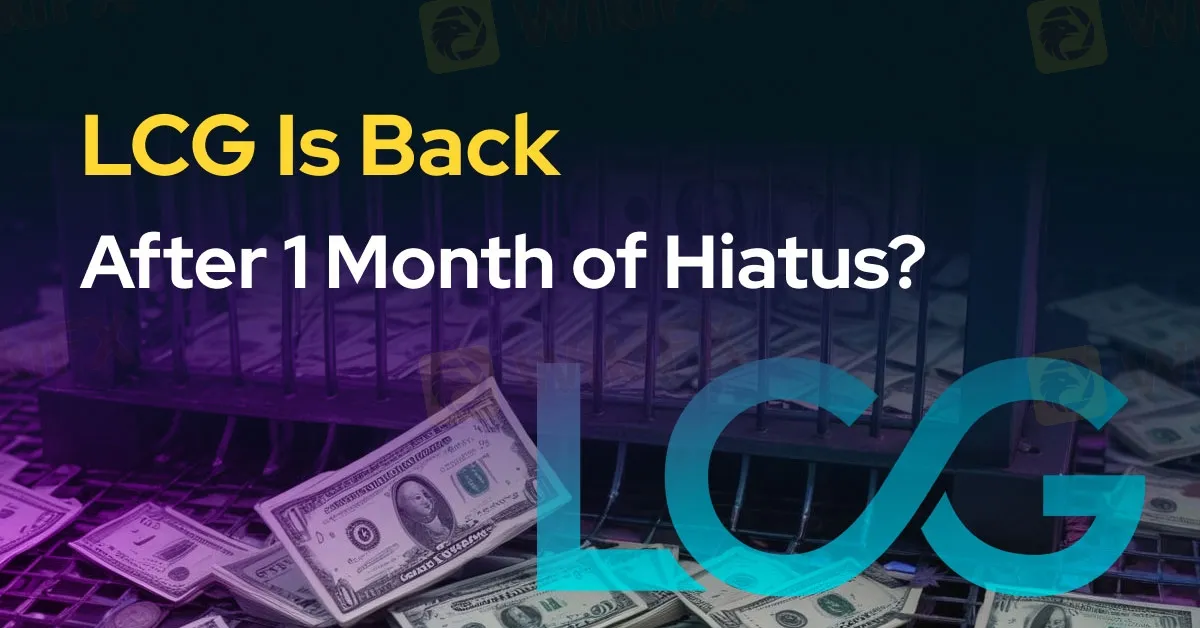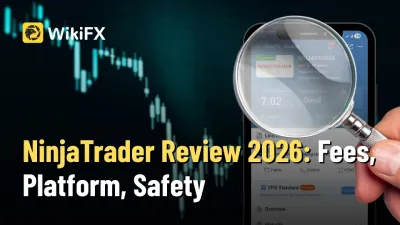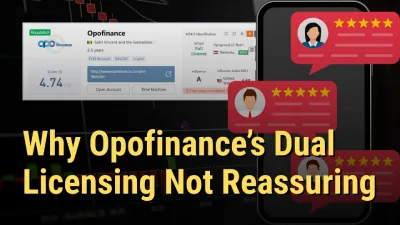Abstract:London Capital Group Ltd (LCG), a retail FX and CFDs broker based in London, has successfully resumed normal operations after temporarily halting the onboarding of new clients last month. This disruption followed the forced bankruptcy of LCG's parent company, FlowBank, in Switzerland, which led to some restrictions being placed on LCG's FCA license.

London Capital Group Ltd (LCG), a retail FX and CFDs broker based in London, has successfully resumed normal operations after temporarily halting the onboarding of new clients last month. Despite this pause, existing clients were allowed to continue opening positions with LCGs partner firms. This disruption followed the forced bankruptcy of LCG's parent company, FlowBank, in Switzerland, which led to some restrictions being placed on LCG's FCA license.
On the day FlowBank entered administration, June 13, LCG managers Dave Worsfold and Matt Basi were caught off guard by the unexpected event. They promptly engaged with the FCA, which required LCG to demonstrate its solvency in light of the situation with its parent company. In response, LCG requested temporary restrictions on its license while third-party experts were brought in to verify the company's financial stability.
After a thorough review, the FCA was satisfied that LCG is a solvent, standalone business. Consequently, all restrictions were lifted on July 8, allowing LCG to return to business as usual. The company now operates under a new Introducing Broker (IB) business model.

It's important to note that the UK-based, FCA-regulated LCG is distinct from the offshore LCG business in the Bahamas, despite the common ownership by FlowBank. The Bahamian entity, which also uses the lcg.com website but is managed directly by FlowBank under the brand FlowBroker, has ceased operations. There are no operational, financial, or business links between the two companies.
In a recent statement, LCG Managing Director Matt Basi described the past month as a validation of the company's decision to shift from a principal trading model to an Introducing Broker model in 2023. The transition has led to a significant reduction in the companys cost base by over 80% and marked its first instance of cashflow positivity in recent history.
Basi also highlighted the strong support received from the team, clients, and partners during this period. LCG achieved a record turnover month in June, surpassing £3bn in notional trade volume, and is on track to exceed this figure in July.
Looking ahead, LCG has ambitious plans, though specifics about these plans remain undisclosed. Basi noted that any potential change in control or equity purchase from the administrators would require prior approval from the FCA. The company is enthusiastic about the future and will provide more details as they become available.
With its operations back on track and a renewed focus on its IB model, LCG is well-positioned for a promising future, continuing to serve its clients and navigate the evolving financial landscape.
London Capital Group Ltd (LCG), a retail FX and CFDs broker based in London, has successfully resumed normal operations after temporarily halting the onboarding of new clients last month. Despite this pause, existing clients were allowed to continue opening positions with LCGs partner firms. This disruption followed the forced bankruptcy of LCG's parent company, FlowBank, in Switzerland, which led to some restrictions being placed on LCG's FCA license.
On the day FlowBank entered administration, June 13, LCG managers Dave Worsfold and Matt Basi were caught off guard by the unexpected event. They promptly engaged with the FCA, which required LCG to demonstrate its solvency in light of the situation with its parent company. In response, LCG requested temporary restrictions on its license while third-party experts were brought in to verify the company's financial stability.
After a thorough review, the FCA was satisfied that LCG is a solvent, standalone business. Consequently, all restrictions were lifted on July 8, allowing LCG to return to business as usual. The company now operates under a new Introducing Broker (IB) business model.
It's important to note that the UK-based, FCA-regulated LCG is distinct from the offshore LCG business in the Bahamas, despite the common ownership by FlowBank. The Bahamian entity, which also uses the lcg.com website but is managed directly by FlowBank under the brand FlowBroker, has ceased operations. There are no operational, financial, or business links between the two companies.
In a recent statement, LCG Managing Director Matt Basi described the past month as a validation of the company's decision to shift from a principal trading model to an Introducing Broker model in 2023. The transition has led to a significant reduction in the companys cost base by over 80% and marked its first instance of cashflow positivity in recent history.
Basi also highlighted the strong support received from the team, clients, and partners during this period. LCG achieved a record turnover month in June, surpassing £3bn in notional trade volume, and is on track to exceed this figure in July.
Looking ahead, LCG has ambitious plans, though specifics about these plans remain undisclosed. Basi noted that any potential change in control or equity purchase from the administrators would require prior approval from the FCA. The company is enthusiastic about the future and will provide more details as they become available.
With its operations back on track and a renewed focus on its IB model, LCG is well-positioned for a promising future, continuing to serve its clients and navigate the evolving financial landscape.











